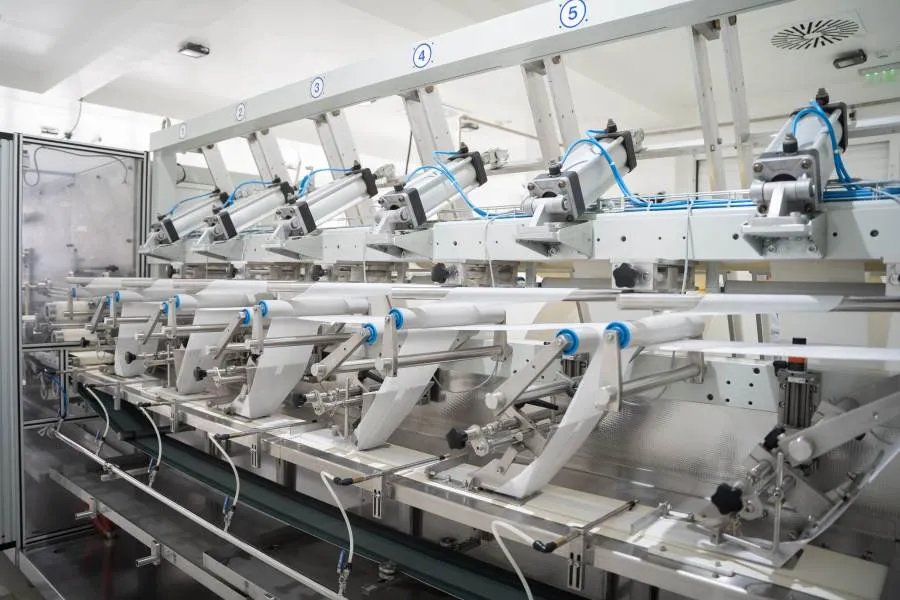UK sets plastic wet wipe ban for 2027, industry urged to “catch up”
Key takeaways
- The UK will ban plastic-containing wet wipes in 2027, prompting personal care brands to eliminate plastic substrates and reformulate their products.
- Industry experts warn that relying on plastic presents a growing business risk, with companies urged to transition to natural materials.
- Loopholes remain as manufacturing and businesses use exemptions, but global momentum is accelerating.

The UK government has confirmed that a ban on plastic wet wipes will come into effect in 2027. The ban prohibits the sale and supply of these items, addressing the severe pollution problem they cause, particularly on waterways, by blocking sewage systems and clogging rivers and seas.
Personal Care Insights sits down with Sian Sutherland, co-founder of A Plastic Planet and Plastic Health Council, to discuss how she expects the ban to impact the personal care industry and how the sector can prepare for legislative changes.
“The most forward-thinking companies view this not as a compliance exercise but as an opportunity to future-proof product lines, meet rising consumer expectations, and reduce the operational and reputational risks linked to plastic pollution.”
Rather than focusing on the issue of plastics, Sutherland says this ban creates opportunities for the industry.
“[It is] a major opening for natural fiber producers, biotech innovators, and manufacturers already investing in plastic-free substrates,” she explains. “Companies developing cellulose-based materials, regenerative plant fibres, or new biodegradable binders are well placed to scale fast.”
She emphasizes that the market requires collaboration, including brands committing to plastic-free wipes, suppliers increasing their production capacity, and retailers allocating shelf space to credible alternatives.
“Businesses actively searching for solutions will accelerate innovation, while those waiting for regulation to force their hand will fall behind. This is a moment for the industry to back the companies building the next generation of safe, high-performing materials.”
Remove plastic and scale up
Sutherland stresses the only credible strategy is to remove plastics immediately and scale alternatives quickly, rather than “scrambling once the next ban is announced.”
“This means auditing every product category, reformulating ahead of regulation, and working with suppliers to build resilient, plastic-free supply chains. Future bans are coming; the companies that thrive will be the ones that move first, not last.”
At the same time, plastic-free wipes are already on the shelves, proving these products can scale just as rapidly as other plastic-free items.
“We did not lose performance or convenience when those items changed, and we will not lose it here,” continues Sutherland. “This is a clear indication that future product design will prioritise materials that are safe, circular, and genuinely disposable, rather than petrochemical plastics that persist for centuries and damage our environment and health.”
 Sutherland underscores that there are still loopholes that weaken the ban’s impact.Still loopholes
Sutherland underscores that there are still loopholes that weaken the ban’s impact.Still loopholes
The ban was introduced in 2021 as a Private Members’ bill by parliament member Fleur Anderson.
Sutherland says that although this ban is long overdue, it must be seen as the start rather than the end. Meanwhile, she underscores that there are still loopholes that weaken its impact.
“At the moment, the legislation bans the sale and supply of plastic wet wipes, but not their manufacture, meaning companies can still produce plastic-containing wipes in the UK, even if they can no longer sell them.”
“Those products can be exported, used elsewhere, and ultimately add to the same global pollution crisis we are trying to solve. There is also a gap in business use. Hotels, gyms, and commercial cleaning contractors can continue to buy and use plastic wipes, even though they end up in the same bins, the same sewer systems, and the same rivers,” she explains.
“These exemptions dilute the progress that is urgently needed. Plastic wet wipes are used for seconds and persist for centuries, blocking sewers, polluting waterways, and breaking down into microplastics that enter our bodies,” stresses Sutherland.
Adding that the public supports stronger action, and alternatives already exist.
“Now we need a clear, sequenced phase-out of all needless single-use plastics so business can innovate with certainty and protect both people and the planet.”
R&D and supply chain challenges
When asked about the most considerable R&D or supply-chain challenges that brands will face in shifting to plastic-free wipe substrates, Sutherland emphasizes the need for speed, in terms of innovations and investment decisions.
“Brands have relied on synthetic fibers for decades, so shifting to natural or biodegradable materials demands rapid reformulation, new suppliers, and different quality-control standards,” she notes.
“Many manufacturers must rethink how they source fibres, manage moisture retention, and guarantee product durability without plastic binders. Some will need new machinery or production lines, which carry cost and learning curve pressures. The good news is that the supply chain is evolving fast as demand grows.”
She argues that the real test is whether brands invest early enough to secure reliable plastic-free materials at scale.
“Those that delay will face higher costs, bottlenecks, and reputational risk as regulation accelerates,” says Sutherland.
“The message to industry is simple: catch up. Consumers do not want plastic in the environment or on the products they use on their skin, and governments are finally responding to that pressure. Brands that continue to rely on plastic substrates or microplastic ingredients are taking a huge business risk.”
“This ban signals a definitive shift away from designing personal care products around cheap, disposable plastics. It reminds us that many low-impact options already exist. Reusable wipes, like the humble flannel, were everyday essentials long before single-use culture pushed them aside.”
 The public supports stronger action, and alternatives already exist, Sutherland argues.Global preparations
The public supports stronger action, and alternatives already exist, Sutherland argues.Global preparations
Global brands are reformulating their products to anticipate wider international regulations on personal care products containing plastic, such as wipes.
“Major retailers in the UK have already removed plastic-containing wipes from their shelves, and manufacturers understand that similar policies in Europe, parts of Asia, and Australia are only a matter of time,” says Sutherland.
However, reformulating wipes is not a quick switch. Businesses with international portfolios are developing plastic-free substrates now to avoid repeated redesigns for different markets, she shares.
Neighboring countries, such as Wales, Scotland, and Northern Ireland, have already legislated or started planning for similar bans.
“Several EU countries are preparing similar restrictions, and markets like Canada, Australia, and New Zealand are actively reviewing plastic-containing wipes as part of broader anti-pollution policies.”
She argues that more nations will follow suit because microplastic pollution is now recognized as a threat to waterways, food systems, and public health.
“This is also a moment for the UK to lead. If the UK sets clear timelines and strong enforcement, it can influence international standards and encourage global brands to prioritise plastic-free design across all markets, not just where the law demands it,” concludes Sutherland.













